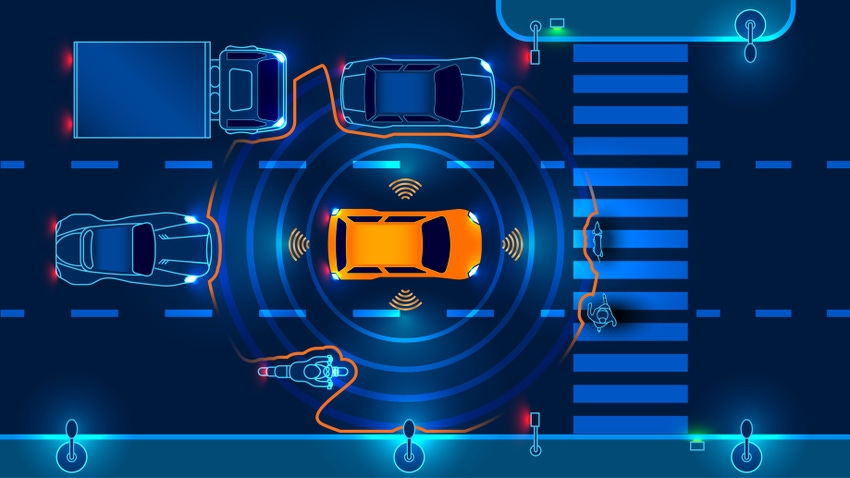EU recruits telecoms giants to develop connected car industry
The 5G-Carmen project is a pilot scheme that leveraged 5G and edge installations to test some spicier capabilities of autonomous cars.
June 23, 2022

The 5G-Carmen project is a pilot scheme that leveraged 5G and edge installations to test some spicier capabilities of autonomous cars.
The project is funded by the European Commission, coordinated by the Bruno Kessler Foundation, and the tech was provided by a roster of telco and tech firms including TIM, Magenta, Deutsche Telekom, Nokia, Qualcomm, NEC and INWIT.
The tests took place in Italy, Australia and Germany, and the crux of it seems to be about what happens when cars cross the border, which is apparently challenging for 5G networks. The trial claims to have demonstrated smooth 5G service continuity for drivers moving from one country to another, using edge computing.
Two cars performed ‘cooperative lane manoeuvres’ (we’re not sure but that might mean moving whilst not smashing into each other) and lane changes using ‘connected, assisted and automated driving along the 5G corridor’ and at the borders between Italy and Austria and Austria and Germany.
We’re told the automated manoeuvres were made possible by an ‘extended perception of the vehicle’, which seems to mean sharing the speed and position of the vehicle and receiving the same info from other vehicles. This is monitored by the on-board sensors, and the data sharing is transmitted over the 5G network and something called C-V2X direct communication.
A test on the Kufstein border between Germany and Austria saw three cars send their position, speed and intention of a lane change via a 5G network to a ‘BMW Manoeuvring Service’ which monitors the state of the traffic, manages the distance between vehicles, generates recommended speed for all of them and decides when is the best moment to execute a lane change.
“The 5G-CARMEN project represents a milestone for the evolution of connected and automated vehicles,” said Matteo Gerosa, 5G-Carmen project coordinator. “Fondazione Bruno Kessler is very proud to lead this important Consortium, to which the European Commission has entrusted the task of implementing one of the main digital 5G corridors for the future of smart mobility. The real added value of 5G-Carmen project has been the synergy and the competences put into the system: companies and research centres have been working side by side for the construction and development of the new business scenario for the future ecosystem of digital mobility and intelligent transport system enabled by 5G connectivity and Edge-Cloud infrastructure”.
If 5G is genuinely providing the sort of low latency that means something approaching full autonomous driving in the real world is becoming more of a realistic proposition, then it represents one of the more impressive potential use cases of it, as well as edge computing, on the market. How quickly people take to the idea of putting their feet up in the back seat while the car swerves around dead badgers and swears at lorry drivers for them, is another matter.
Get the latest news straight to your inbox. Register for the Telecoms.com newsletter here.
About the Author(s)
You May Also Like











_1.jpg?width=300&auto=webp&quality=80&disable=upscale)


.png?width=800&auto=webp&quality=80&disable=upscale)